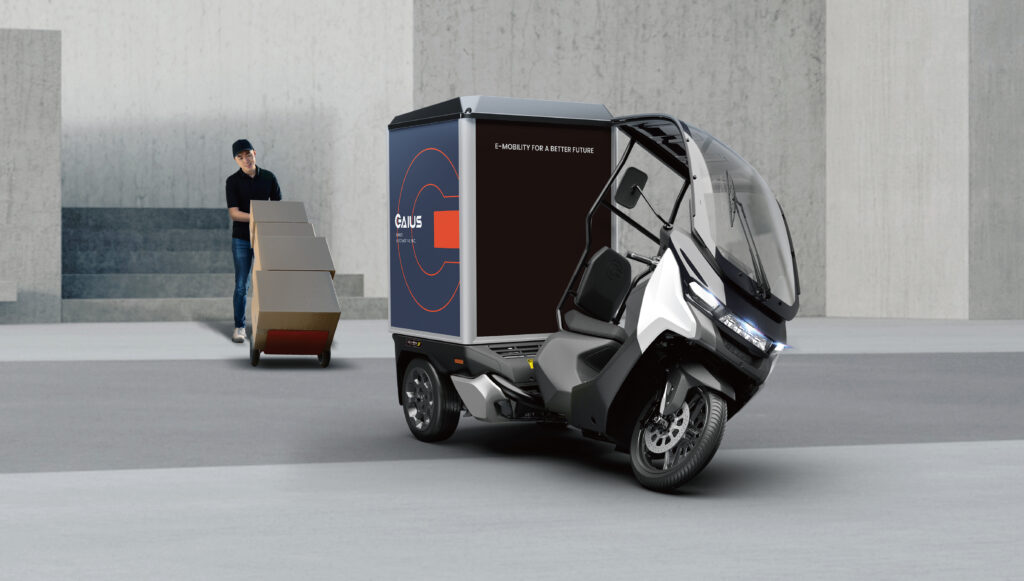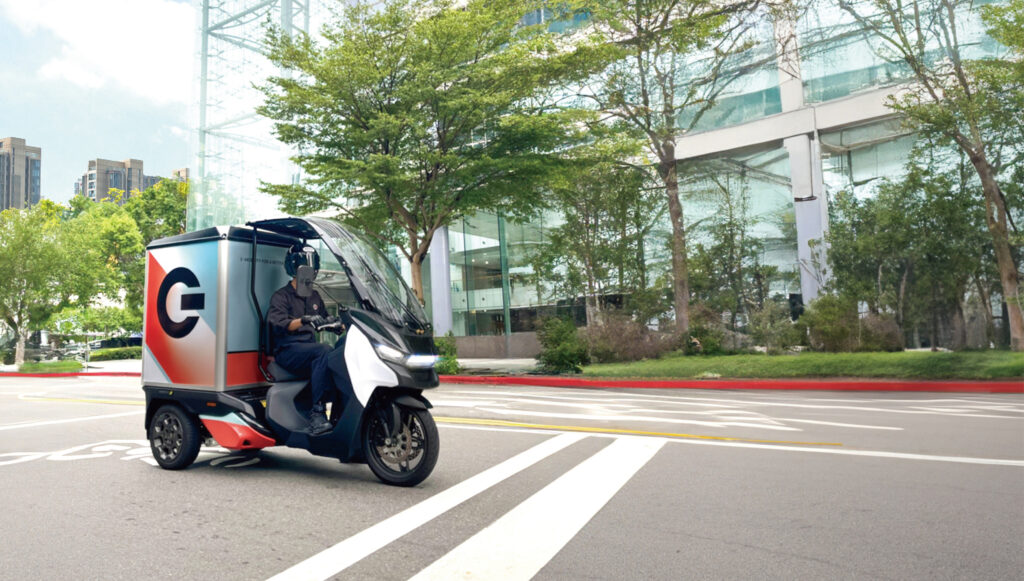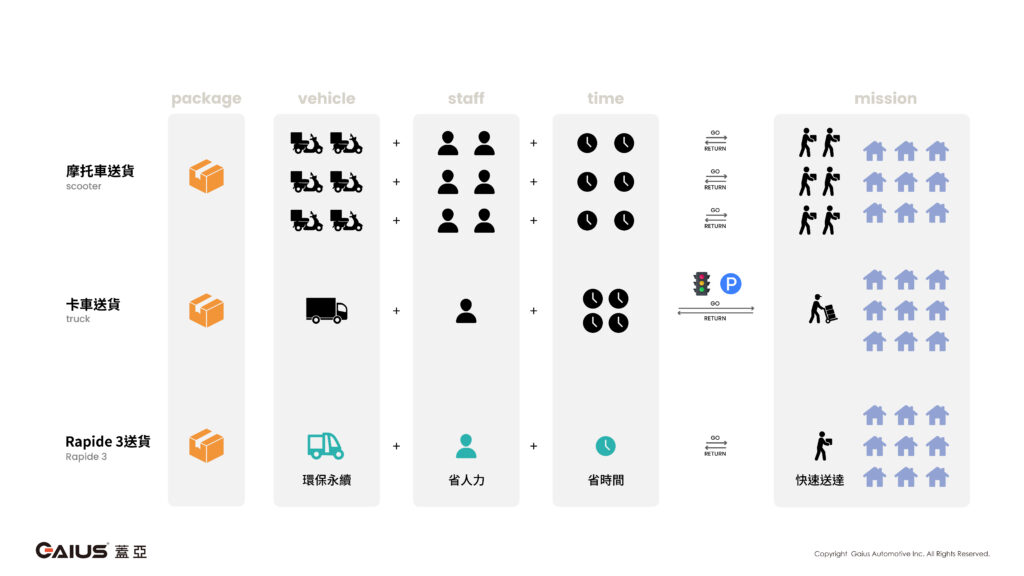|

Gaius Electric Vehicle Facilitate More Efficient and Sustainable Global Logistics Delivery
In the post-pandemic surge in e-commerce, ESG progress and international advocacy initiatives have become topics of global attention. They are
now seen as critical benchmarks for evaluating the sustainable development of businesses. Although COP 26 is not viewed as having lived up to
expectations, governments and major corporations worldwide have nonetheless committed to specific carbon reduction plans for the next decade,
with the adoption of electric vehicles being the first step in their carbon-reduction efforts.

According to a report from the U.S. EPA, the transportation sector, including cars, trucks, commercial aircraft, and rail constituted the largest share
(29%) of total U.S. greenhouse gas emissions in 2021. Within this category, light-duty vehicles are responsible for 58% of carbon emissions. If all these
light-duty vehicles were to be converted to electric vehicles, it would have a significant impact on the reduction of greenhouse gas emissions.
In densely populated cities, online shopping and home delivery have increasingly become the dominant retail trend, which poses many challenges for
logistics providers. According to statistics, the transportation costs of the last-mile delivery account for 53% of the total logistics costs. At the same time,
the average cost for businesses to deliver in the last mile is approximately $10.1, while businesses charge customers an average shipping fee of around
$8.08. However, consumers are only willing to pay an average shipping fee of $1.04. As e-commerce platforms are aiming to increase customer retention,
not only do they offer free shipping as an incentive, but they also strive to shorten delivery times. Consequently, enterprises are progressively demanding
more precision in last-mile logistics, enhancement of delivery efficacy, and strategic reduction of associated costs.
In response to the various challenges of last-mile delivery, logistics providers are not only establishing small satellite warehouses around cities but are also
actively seeking vehicles that can deliver swiftly while meeting sustainability objectives. Examples include light electric vehicles compliant with European
L-category regulations, with three-wheeled electric vehicles being especially popular.

L-category light electric vehicles are renowned for their superior maneuverability and have become widely used in Europe. Most of these vehicles fall
under the L2 category with top speeds of 45km/h and a cargo capacity of around 80kg. With rising parcel delivery demands, these vehicles are lacking
in capacity day by day. As a result, L5-category three-wheeled electric vehicles, with higher speeds and the capability to carry heavier cargo, are capturing
the attention of logistics service providers and postal services due to their ability to integrate with existing fleets easily. Gaius Automotive from Taiwan has
addressed this need by introducing Rapide 3, the L5-category vehicle. By offering a three-wheeled EV with a high cargo capacity and the agility rivaling a
2-wheel vehicle, they aim to improve delivery efficiency. Furthermore, the nature of electric vehicles makes connectivity and real-time operational management
easier, ensuring better control of fleet performance.
Gaius electric vehicle Rapide 3
Unlike consumer vehicles which are primarily used for weekday commutes, logistics commercial vehicles must be not only durable for long working
hours but also meet high safety standards. Gaius Automotive’s Rapide 3 three-wheeled electric vehicle features a unique patented 35-degree tilting
system, which breaks through the limitations of cargo capacity and speed typically associated with three-wheeled vehicles. Even when carrying tall,
narrow cargo containers, the three-wheeled electric vehicle can navigate high-speed turns and easily avoid obstacles, adding an extra layer of safety
to logistics delivery.

Global courier brands such as FedEx and DHL, along with Taiwan’s leading online retailer, Momo, have all adopted Gaius Automotive’s commercial
electric three-wheeler, Rapide 3, as their delivery vehicles in Taiwan. With its 1000-liter cargo capacity, Rapide 3 can carry up to 200kg of cargo. In
comparison to two-wheeled motorcycles, it not only offers four times the cargo space but also reduces the mileage for round-trip restocking by
14%, shortens the delivery time per package, greatly enhancing delivery efficiency. There’s no need to worry about traffic congestion or finding
parking space as its maneuverability is significantly superior to larger trucks. In terms of sustainability goals, when compared to fuel-powered motorcycles,
Rapide 3 can reduce carbon emissions by 35kg per month. Extending such results to 10 years means a reduction of approximately 4.2 tons of carbon
emissions, making the last mile of logistics transportation cleaner and more sustainable than ever.
Gaius believes that only by accelerating vehicle electrification and making the last mile of transportation cleaner and more eco-friendly can we significantly
improve the quality of life for the world. This approach shall aid businesses in pursuing growth and sustainability, while exemplifying a bright future of zero
emissions and no pollution.
